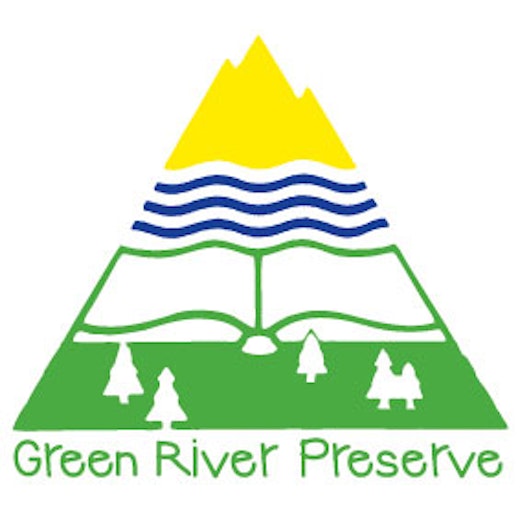
Environmental Ethics: Woodcraft Laws
 Studies on environmental ethics, or environmental philosophies, are all loosely based around the same concept: that the land, the trees, the plants and animals are all a vital and integral part of our society. In our current technology-driven world, humans often forget that we are not the wisest, oldest, or most powerful beings in this world. Here at Green River Preserve, we strive to instill in future generations that we all have a moral and ethical responsibility to protect and cherish our environment, everywhere we go. This mission is encompassed in our Woodcraft Laws.
Studies on environmental ethics, or environmental philosophies, are all loosely based around the same concept: that the land, the trees, the plants and animals are all a vital and integral part of our society. In our current technology-driven world, humans often forget that we are not the wisest, oldest, or most powerful beings in this world. Here at Green River Preserve, we strive to instill in future generations that we all have a moral and ethical responsibility to protect and cherish our environment, everywhere we go. This mission is encompassed in our Woodcraft Laws.
 Beauty, the first Law, reminds us daily to keep our earth clean. Pick up trash when you see it, protect all wildlife—from the tiniest ant to the mighty eagle—avoid and actively fight the pollution of our waterways, and just as important, keep your body and mind cleansed so that you can continue to work to your fullest potential on behalf of the earth.
Beauty, the first Law, reminds us daily to keep our earth clean. Pick up trash when you see it, protect all wildlife—from the tiniest ant to the mighty eagle—avoid and actively fight the pollution of our waterways, and just as important, keep your body and mind cleansed so that you can continue to work to your fullest potential on behalf of the earth.
 Truth, our second Law, iterates that word of honor is sacred, and foul play is treachery. This law keeps our moral compasses aligned and fosters integrity, which is doing the right thing even we don’t think anyone is watching. Anyone can talk about how much they do for the environment, but not everyone lives that truth. Here at GRP, we want to encourage campers not only to be honest in their relationships with their peers and families, but also to be truthful in their relationship with the natural world around them.
Truth, our second Law, iterates that word of honor is sacred, and foul play is treachery. This law keeps our moral compasses aligned and fosters integrity, which is doing the right thing even we don’t think anyone is watching. Anyone can talk about how much they do for the environment, but not everyone lives that truth. Here at GRP, we want to encourage campers not only to be honest in their relationships with their peers and families, but also to be truthful in their relationship with the natural world around them.
 Fortitude: be brave, show your elders deference, obey. The key to environmental conservation and the trick to forming your own personal environmental ethics philosophy is to learn from, respect, and obey your elders. These may be the Mentors who take you on hikes, your counselors or other staff who may have experience with environmental education, but it also refers to the trees, the rivers, the valleys, and canyons that have been around for so much longer than even the first humans. Be quiet and listen to the trees, though they cannot speak in the traditional sense, they have so much to say.
Fortitude: be brave, show your elders deference, obey. The key to environmental conservation and the trick to forming your own personal environmental ethics philosophy is to learn from, respect, and obey your elders. These may be the Mentors who take you on hikes, your counselors or other staff who may have experience with environmental education, but it also refers to the trees, the rivers, the valleys, and canyons that have been around for so much longer than even the first humans. Be quiet and listen to the trees, though they cannot speak in the traditional sense, they have so much to say.
 The last Law is Love: be kind, be helpful, do one act of unbargaining service to the earth each day. Seek the joy of being alive in the natural world, love the earth unconditionally and understand all she provides for us. If all the above laws can be factored into our personal moral compasses and our philosophies for living a fulfilled life, then we will truly have a deeper understanding, respect, and love for the land that gives us life.
The last Law is Love: be kind, be helpful, do one act of unbargaining service to the earth each day. Seek the joy of being alive in the natural world, love the earth unconditionally and understand all she provides for us. If all the above laws can be factored into our personal moral compasses and our philosophies for living a fulfilled life, then we will truly have a deeper understanding, respect, and love for the land that gives us life.
Laine Elliott
